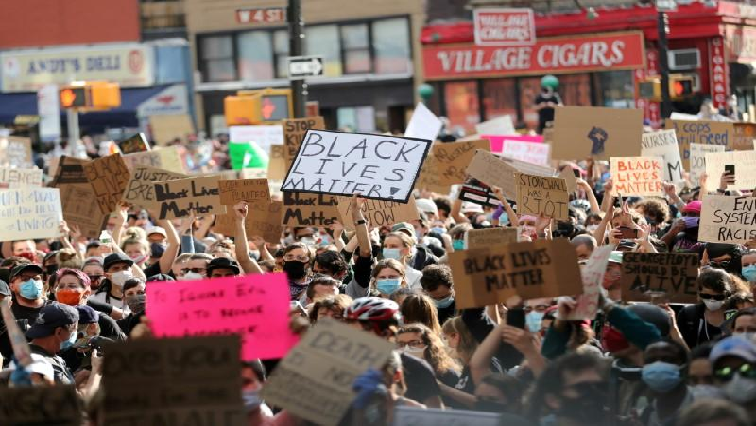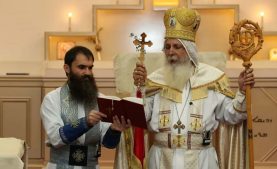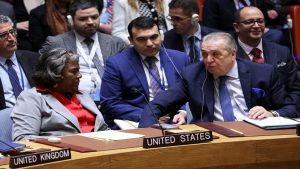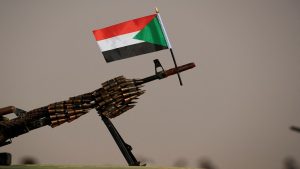The evidence is ubiquitous: We live in a constant and continuously jittery world order. It is visibly imbalanced and in typical Orwellian fashion – some nation-states are more equal than others.
Two very recent, nay, current global events give credence to my standpoint on a patently unequal international order. They are first and foremost the unabating race riots at the centre of American politics and secondly, the alleged poisoning of the Russian opposition politician Alexei Navalny.
Whereas domestically African-Americans through their global movement Black Lives Matter (BLM) have forced their subtle institutional discrimination to the centre of America’s national discourse – exasperated at being treated as second-class citizens in the land of their birth – the issue of Navalny has similarly brought to the fore the Geo-political tensions that are a remnant of the Cold War stand-off between the Soviet bloc and West from 1945 to 1990.
The facts, however, are interesting. Let’s for a moment take a closer look at the Navalny saga. He fell ill on a flight from Siberia to Moscow on August 20, and was rushed to a hospital in Omsk where the plane had made an emergency landing.
Two days later he was flown to Berlin in Germany, where he remains in a critical but stable condition at the Charite hospital.
The German doctors who are keeping Navalny, aged 44, in a medically induced coma say their preliminary findings are that the anti-Kremlin politician was poisoned. They describe the poison as a group of substances better known as “cholinesterase inhibitors”. The doctors describe “cholinesterase” as a “group of chemicals that are found in several drugs, as well as in some pesticides and nerve agents”.
The Germans, and unsurprisingly the European Union (EU), are demanding answers from Moscow. The German foreign minister, Heiko Maas, has warned of “dark clouds” hanging over the EU’s bilateral ties with Moscow. Navalny’s “poisoning”, claims Maas, have put the entire security of Europe at risk.
Now, really? Not in my book, certainly not. For starters, the Russian doctors who treated Navalny in Omsk say for the two days during which they kept the opposition politician alive none of the tests performed on him revealed poisoning. However, to their credit, the Russian doctors have undertook to cooperate with their German counterparts and have requested empirical evidence so as to formulate grounds for a thorough investigation into the poisoning theory.
But the Germans are not willing to share the relevant data. The Russians correctly are asking: How then do you expect us to try and solve this mystery together when you are not cooperative?”
As days went by, more individual Western nations raised their voices against Russia, who has been under severe EU economic sanctions for several years now, forcing the Russian currency Ruble to drastically shrink in value. Even British Prime Minister Boris Johnson, he of the Brexit fame/infamy depending on where you stand, put in his two-penny worth. He demanded that Moscow conducts a thorough investigation into the poisoning of Navalny, who is also known as a vehement crusader against corruption. The US, of course, has echoed similar sentiments. The chorus of condemnation has not spared the highest political office in Russia and its occupant, President Vladimir Putin the wrath of critics. Putin’s detractors – and there are many across the West, insist that Putin’s hand can be seen in the Navalny matter. The Kremlin has vehemently denied any involvement in the saga, but the West is having none of it. The issue, as things stand, is a developing tussle between Russia and the West.
And, I dare warn, if not handled with mutual respect, the Navalny matter is highly likely to cause a major deterioration in the already poor diplomatic relations between the two sides. Inevitably, the military drills on both sides will be heightened. Russia’s allies in the East, including superpower China, will likely increase its military state of readiness. Across the Gulf and Middle East the perennial foes will likely assume their opposing postures. Targeted EU sanctions will likely be unleashed on Russia as well as the much-maligned states such as Iran and probably Turkey, whose stand-off with Greece has attracted EU’s very public rebuke to Ankara.
On the other hand, to prove my point about a world of double standards, the plight of African-Americans is viewed by most of the international community as a domestic matter which is an exclusive preserve of Washington to deal with.
Too many black men, in particular, have perished at the hands of a clearly racist, predominantly white supremacist police force. Some victims of the US police brutality, such as George Floyd, make international news as their demise is captured on camera. Many others perish quietly, leaving only their families and friends to deal with their bereavement and outrage.
Question is: Why is the world not speaking out against such naked state excesses? I mean, the US randomly makes all sorts of demands from any individual country across the world. At times, in flagrant disregard of the UN, the US declares war on its enemies as was the case in its invasion of Iraq in 2003. The basis for that Invasion, led by former president George W Bush, was that Iraq’s Saddam Hussein possessed weapons of mass destruction. Of course, the world came to know soon afterwards that there was nothing as such. Yet until today, there have never been any repercussions against the US on the international front. This is the double standards that worry all peace-loving citizens around the world.
I am particularly concerned about the deafening silence of the member-states of the African Union (AU).
It is my wish that in the same way that the West constantly and without fail make pronouncements on developments in Africa, the AU should in return express its views on developments as they unfold in the West.
The plight of African-Americans is a case in point. Apart from the fact that the victims of police brutality are descendants of slaves from Africa, and our brothers and sisters in the Diaspora, human rights abuse by anyone anywhere in the world, including the Trump administration, ought to be condemned without fear.
The UN has spent a good part of its life-span since the end of World War2 in 1945 navigating hazardous paths of balancing conflictual interests. Constantly teetering on the brink of yet another possible world war, it goes to show that the world has learnt little or nothing from history. As the cliché goes, “history repeats itself”. It needs only a spark to trigger a war, and many war-mongers at the helm of power in various nation-states, particularly in the West, would be desperate to use the Navalny saga as matches – a tool for starting a fire. Humanity deserves a better world.






